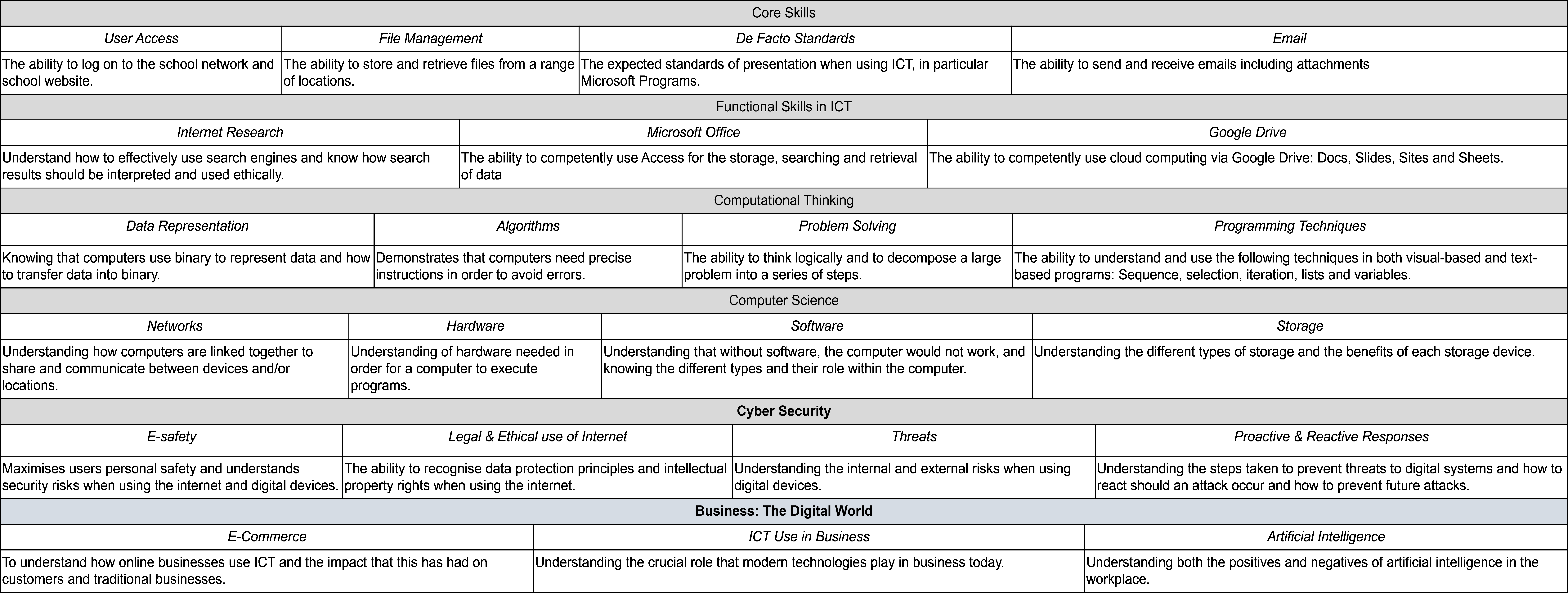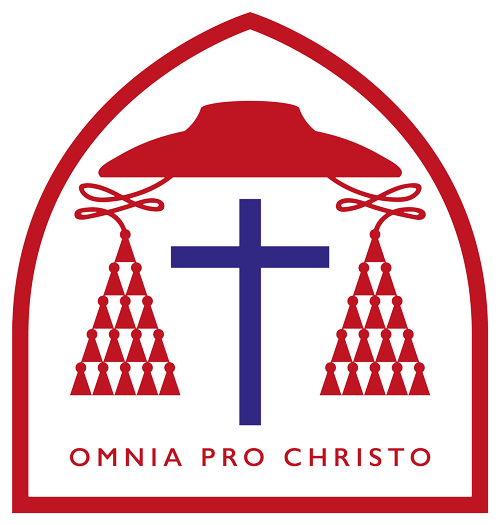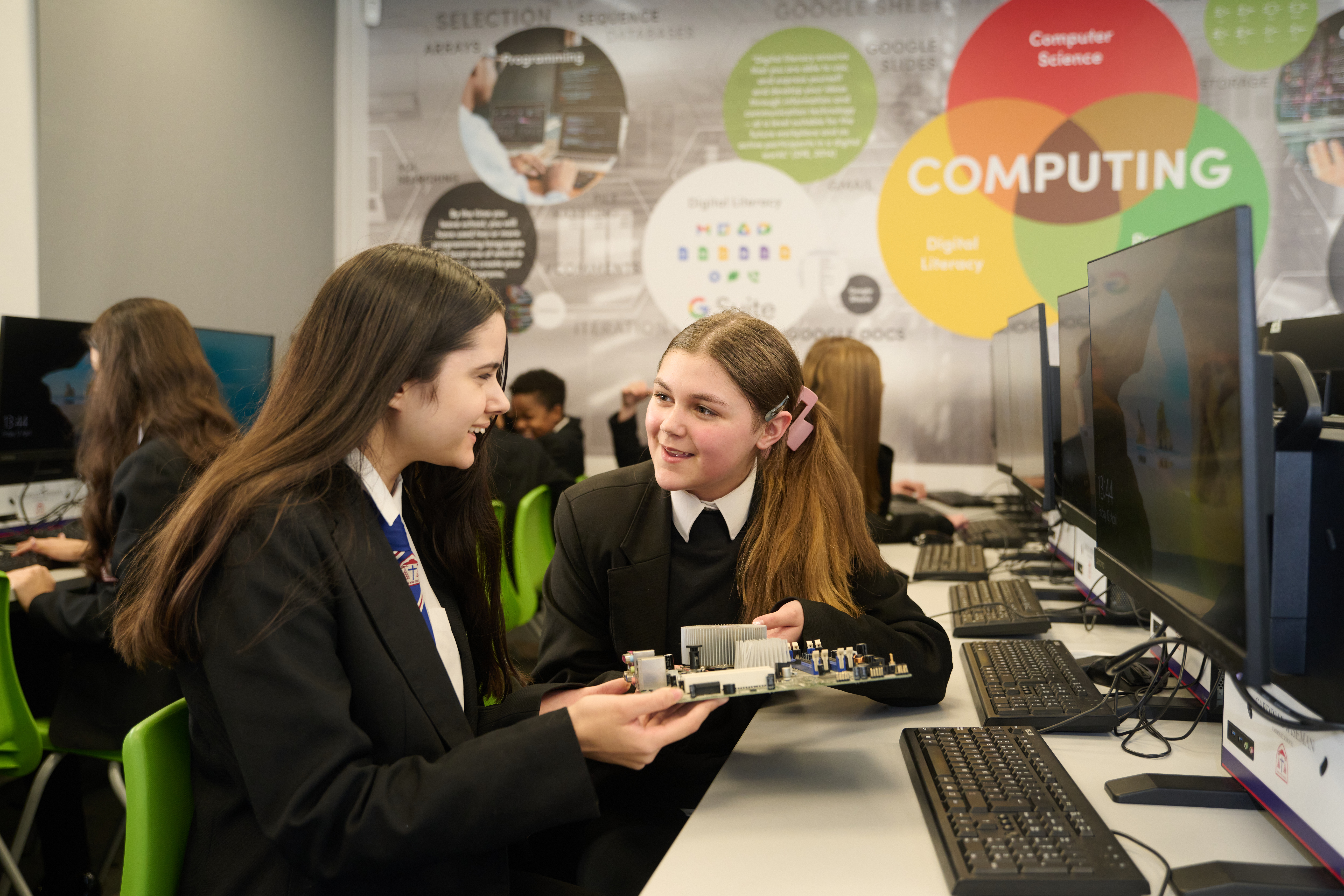
What is Computing?
Computing, as a subject, involves the study and application of computer technology to manage, process, and communicate information. It includes the development of both hardware and software, focusing on various key areas:
- Algorithms
- Programming and Developments.
- Data and Data Representation
- Hardware and Processing
- Communication and Networks
- Information Technology
What is Business?
The study of business is about how individuals and groups of people organise, plan and act to create and develop goods and services to satisfy customers. Business is influenced by, and impacts, on the cultural, ethical, environmental, political and economic conditions of the day.
Business can be further explained as:
- Application to industry
- Enterprise - experience runnings enterprise activities
- Knowing about future job roles and responsibilities - functional areas/hierarchy
- Preparing for future careers
- Ensuring key skills for the workplace
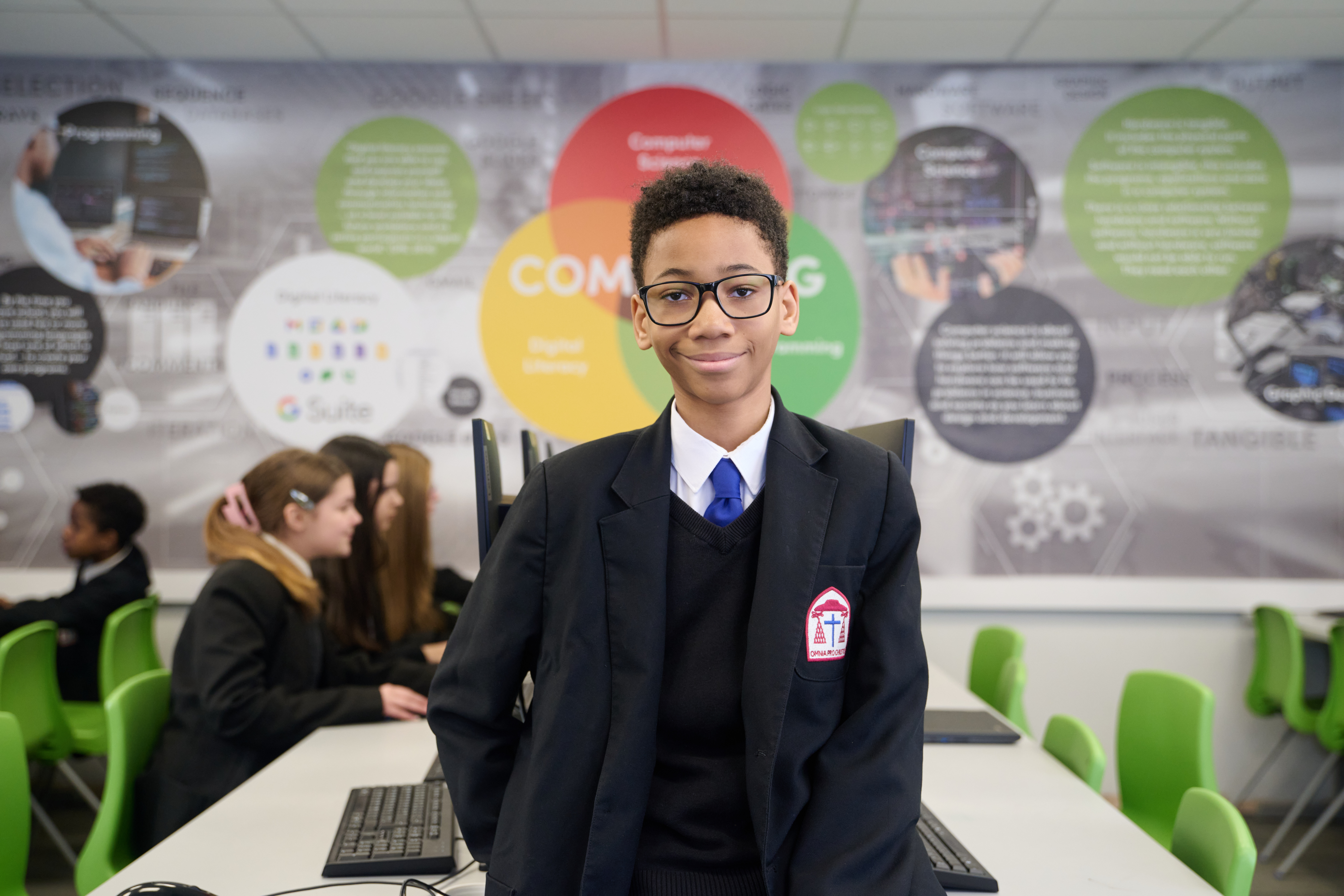
Why have we chosen OCR GCSE Computer Science at KS4?
- GCSE Computer Science builds on the Key Stage 3 Computing curriculum.
- For our students, this subject provides routes into programming, data analysis, cyber security and game development.
- The course combines the theory of how the computer works with practical programming skills.
- Two components, externally assessed. Component 1 Computer Systems and Components 2 Computational thinking, Algorithms and Programming
Why have we chosen EdExcel GCSE Business at KS4?
- GCSE Business builds on the Key Stage 3 Computing curriculum ICT Skills for Business units.
- For our students, this subject provides routes into business start-up and working for larger companies.
- Mandatory: Participation in business simulations and school-based enterprise activities.
- Optional: Opportunity to set up and run a Young Enterprise Company as an extracurricular activity.
- The course examines how small businesses are set up before looking into how organisations grow.
- Two components, externally assessed. Component 1 Investigating Small Business and Components 2 Building a Business Programming (with experience in setting up and running mini-enterprise companies)
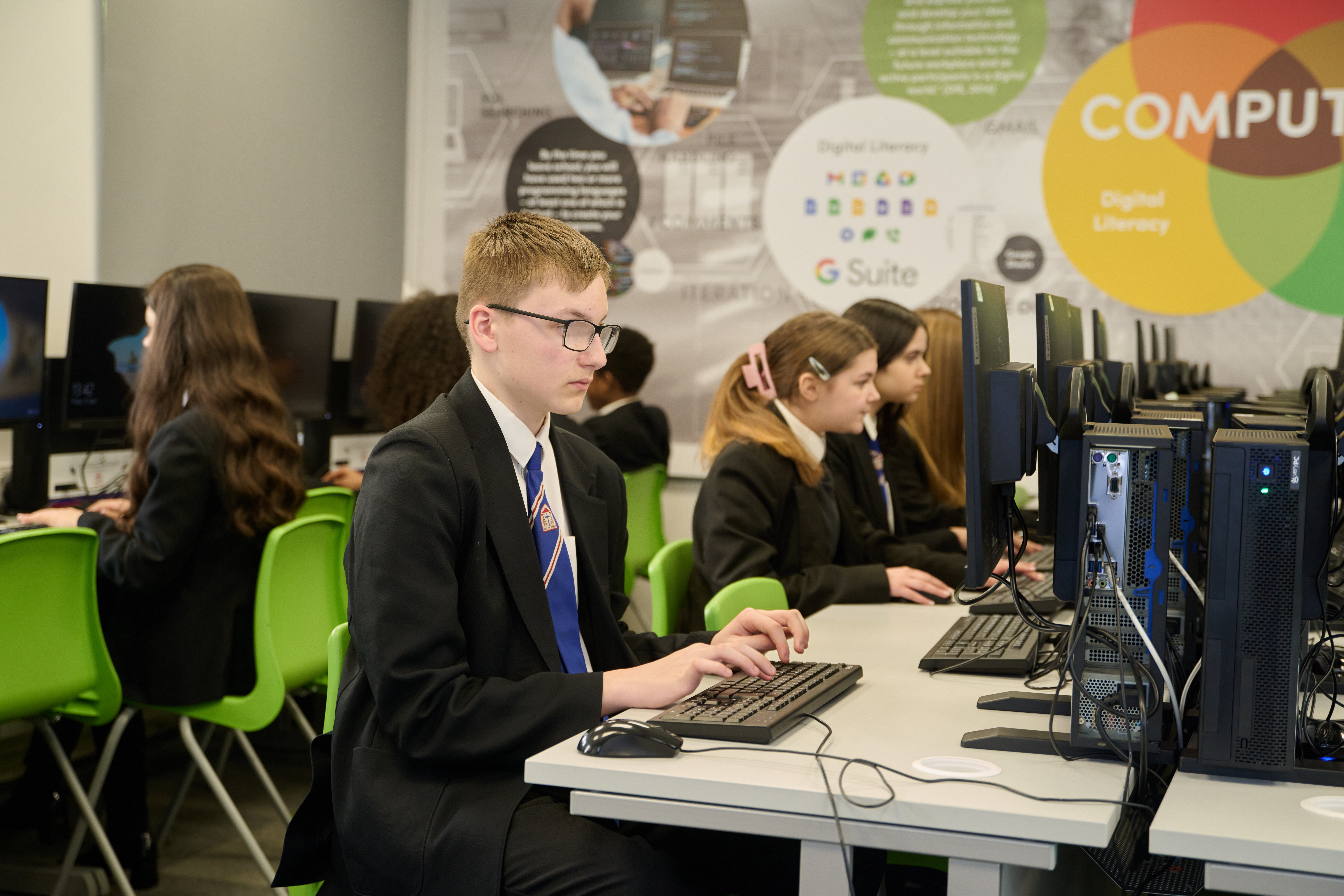
Why are these subjects important?
- We will provide students who are work-ready
- We are preparing them for the outside world of work.
- We are bridging the social divide, enabling all students to have a set of transferable skills that can provide job opportunities for them.
- Through enterprise education and Young Enterprise, we are providing the opportunity for students to set up and run a legally registered business.
- Transferable skills providing IT skills needed in college, university and the workplace.
- Links directly KS3 curriculum providing transferable skills in IT needed in college, university and the workplace.
- Links to careers, providing understanding of the role of technology in the workplace.
- There is currently a national shortage of Computer Science graduates and thus we are helping to fill that gap.
- Functional skills in ICT, providing transferable skills in IT needed in college, university and the workplace.
What is the purpose of the subject?
- Who are the children - what IT do they have access to at home/primary?
- Some students arrive only having used tablets at primary, this needs to be addressed in the Year 7 curriculum, e.g. the use of a mouse/keyboard.
- Some students arrive with limited/no computing at KS2, this means that in the introductory unit, basic skills in using computers, e.g. saving files, accessing files etc.
- What is the purpose for our students at this moment?
- Preparing them for the outside world of work.
- Bridging the social divide by giving them functional skills in ICT, which are transferable skills, that will enable all students, regardless of background, equal access to IT skills to make them work-ready.
- Links to careers, especially Computer Science
Key Concepts in Computing & Business
